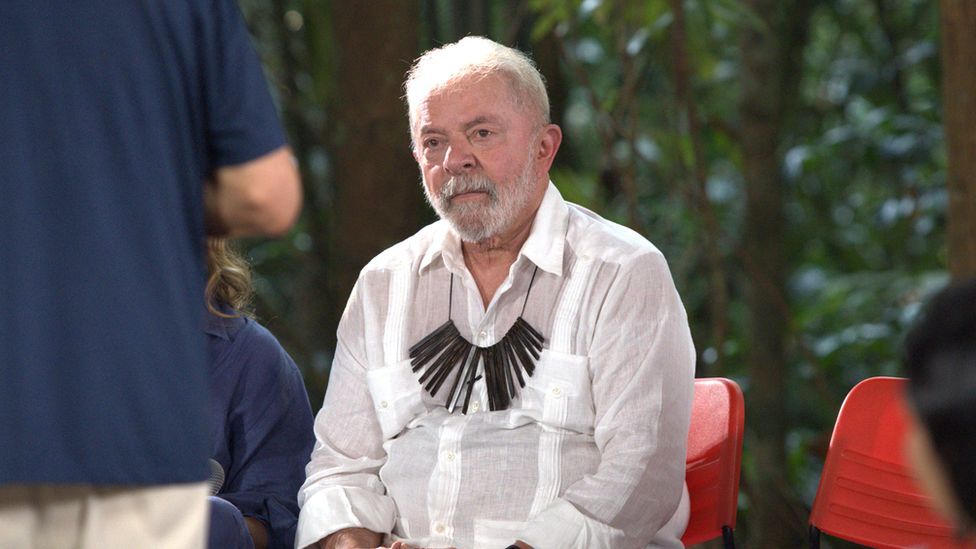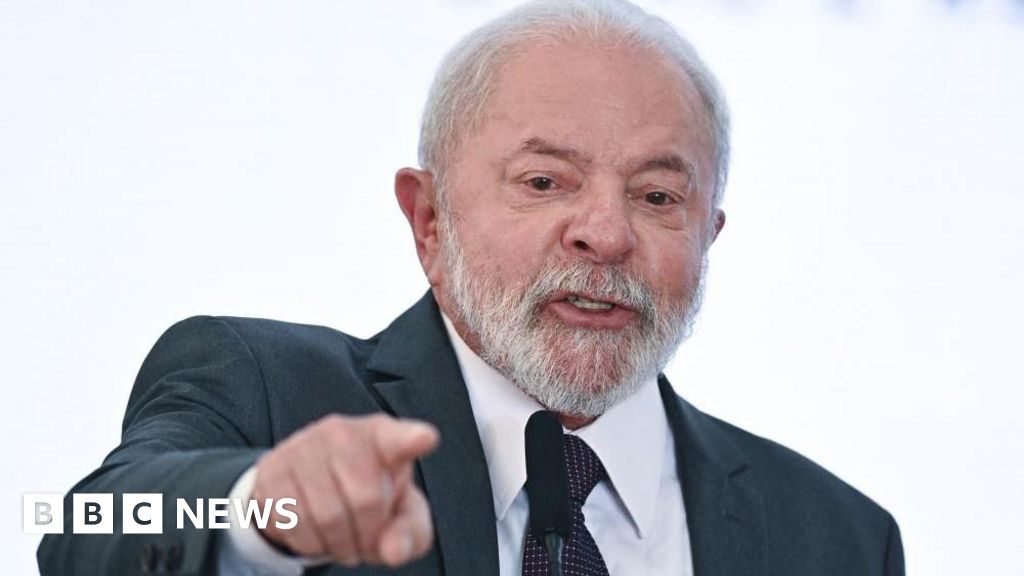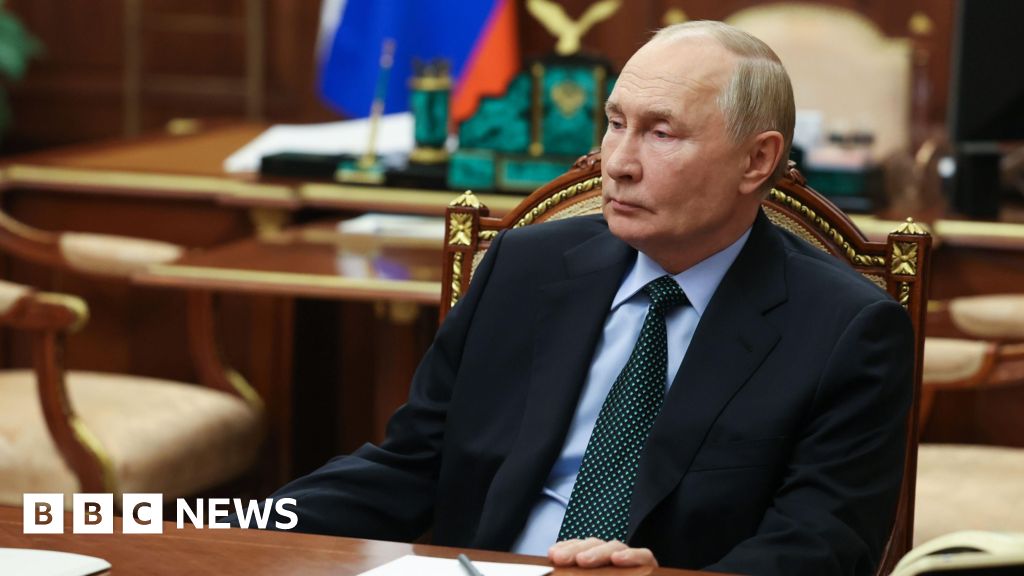ARTICLE AD BOX
By Katy Watson
BBC South America correspondent, in Manaus

Lula, who led the country from January 2003 to December 2010, is running for a third term
In the second of two profiles of the leading candidates in the race to become Brazil's new president, Katy Watson asks if Luiz Inácio Lula da Silva is the same person who took the world by storm 20 years ago.
It is no coincidence that Lula chose the Amazon as one of his key destinations on the campaign trail.
The 76-year-old's main rival in the presidential election on 2 October, far-right President Jair Bolsonaro, has been accused of destroying the rainforest.
Lula knows that climate issues have soared to the top of the political agenda and in Manaus, the biggest city in the Amazon, he told reporters "the planet needs special attention from all of us".
"We need to look after our forest, our fauna, our water, but most of all, we need to look after our people because they're struggling, they're in need and they need to live with dignity," he said. "We can reclaim this country, it's possible to once again walk with our heads held high."
Lula chose the Museum of the Amazon to meet indigenous leaders and talk about the future of the forest. "Nobody wants to turn the Amazon into an untouchable world sanctuary," he told the audience.
"What we want is to benefit from our wealth, our biodiversity." By saying that, the former president shows that he is aware of his rival's message. President Bolsonaro is at great pains to say that the rest of the world needs to stop meddling in Brazil's affairs.
Lula remains very popular among left-wing supporters in Brazil
It is 20 years since Lula won the presidency for the first time. A former metal worker and union leader, he became a familiar face during the strikes of the 1970s, when workers called for higher wages, defying Brazil's military rulers.
He came to power promising change. Helped by high commodity prices, he spent the windfalls on areas such as higher education and welfare programmes that contributed to lifting millions of Brazilians out of poverty.
Described by former US President Barack Obama as "the most popular politician on Earth", Lula left office after eight years in power with an approval rating of more than 80%.
Like him or hate him, he was a politician unlike any other. But in recent years, that legacy has been tainted with his party - and Lula himself - hit by corruption scandals.
In 2017, he was sentenced to nine years in prison. His convictions were quashed four years later, but his brush with the law means that he is no longer just seen as the "saviour" of Brazil. Instead, many millions of Brazilians see him as a corrupt politician unfit for office.
Given that split among voters, I asked him how he thought he could convince the electorate he is the right man to lead Brazil.
"Deaths [like that] of Dom Phillips and Bruno Pereira can't ever happen again," he said, skirting the question with a reference to the killing in June of a British journalist and an indigenous expert in the Amazon.
"Brazil needs to be transformed into a civilised country, it can't fall victim to inhumane people," he added. "I am convinced that we need to change Brazil - and changing Brazil means having a government that assumes responsibility for really caring for people."
Carol Araújo says she is unsure if a return to power for Lula would improve things
Not far from the centre of Manaus, where Lula spoke, 24-year-old mother-of-three Carol Araújo lives in small community of palafitas - houses that sit on stilts over a small river.
Rainy season is coming to an end and the earth below the houses here in the neighbourhood of São Jorge resembles a swamp more than a river.
Rubbish is everywhere: broken bottles, old boxes and shoes. In the sweltering heat of Manaus, the stench is overpowering.
She knows nothing but hardship, but she does know who she is going to cast her ballot for. "I'm going to vote for Lula because under him, everything was easier," she says. "But I don't know if [by him] coming back things will improve."
It is a risk she is prepared to take. With food and energy prices rising, she cannot make ends meet.
"I try and find work when it comes my way but it's hard. I have to make it work to feed my children." She says that it comes down to knowing who will help her and those like her, because "during the elections, all the politicians do is make promises".
Another Lula supporter, Beth Ferreira, says she is "crazy" about Brazil's former leader
Lula more easily relies on the older generation, which can remember the good times, but he knows he will have to win over the younger generation voting for the first time.
"It's a sign of the incapacity of Brazil's elite to renew itself," says Oliver Stuenkel, professor of international relations at the Getúlio Vargas Foundation in São Paulo.
"Lula has been running for president since Brazil became a democracy in the late 1980s, and in that sense he is very much a key personality of Brazil's transition from autocracy to democracy. But he struggles to point to the future, he's very much a throwback."
But while this is the same Lula, he will not be in charge of the same Brazil. Economic crises and more political polarisation set the country apart from what he inherited the first time.
For supporter Beth Ferreira, that does not matter. "I am crazy about Lula - Brazil needs him because we are in decline," she says. "When he started in 2003, Brazil was in the same situation, it was devastated. And we think he can do the same thing - our hope never dies."

 2 years ago
15
2 years ago
15








 English (US)
English (US)